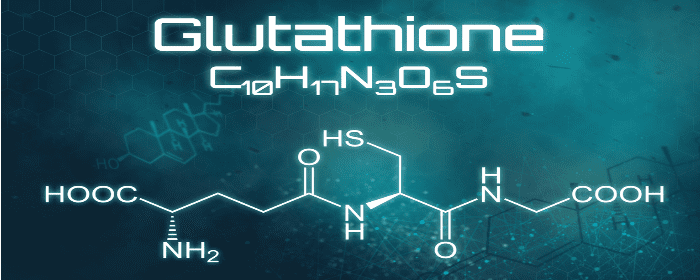
by admin | Jul 20, 2020 | Autoimmune, Health Awareness
The benefits of regular physical activity simply can’t be overstated. From controlling weight to boosting energy, improving mood, and reducing the risk of chronic illness, it’s among the best things you can do for your health, especially when coupled with sound nutrition. Yet, what happens if you already have a preexisting condition that makes exercise difficult?
For people with autoimmune disorders such as lupus, certain types of arthritis, and fibromyalgia, among many others, periods of flare-ups can make exercise challenging. When low energy levels, widespread pain, and other challenging symptoms manifest, it’s understandable that the last thing you’d want to do is exercise.
Nonetheless, while more movement might seem counterintuitive to controlling pain, it turns out physical activity could actually help control your symptoms. In fact, people with certain autoimmune disorders who exercise regularly may experience a milder disease course, improved mobility, and better cardiovascular wellness. Plus, exercise releases endorphins, the body’s natural painkillers, and can reduce inflammation and anxiety.
Of course, to get moving while you’re in pain is a delicate balancing act: too much of a good thing can certainly backfire. For this reason, low-impact exercise is best for people with autoimmune disorders, especially during flare-ups. Here are some recommendations for working out in a way that works for you and your autoimmune condition:
Be mindful of your personal needs.
The symptoms of autoimmune conditions can vary significantly from one person to the next. Moreover, you’re likely to experience good days and bad days. Before you plan a workout for the day, check-in with yourself, and make an honest assessment of how you’re feeling. If you’re too drained or in pain to work out, don’t stress over a missed workout.
Recruit the experts.
While you can certainly establish a workout regimen independently, it doesn’t hurt to get input from your medical specialists, and perhaps even some physical fitness pros. Whether you work with physical therapists who specialize in joint conditions or a trainer at your local gym who can help you perfect your form, getting expert advice may help you avoid injury and find an approach that best suits your needs.
Go for low-impact exercises.
Explosive, plyometric moves like box jumps and burpees aren’t for everyone. If just the thought of these moves gets your joints aching, don’t fret. There are still plenty of low-impact moves that can elevate your heart rate and provide a quality workout. Cycling, swimming, rowing, yoga, treadmill walking, and Pilates are a few joint-friendly exercises to consider.
Track your workouts.
It’s easy to be consumed by numbers such as calories burned and minutes worked out. Instead of focusing on these metrics, look instead at how you feel before, during, and after a workout. Check for patterns that may help you better understand which types of exercise are best suited for your body and when. For instance, if you feel particularly sore after one type of workout, it may be best to scale back next time or skip that activity altogether. If, on the other hand, you feel loosened up and relaxed afterward, consider adding that type of exercise to your regular regimen.
Fuel your body appropriately.
For people with autoimmune conditions, good nutrition isn’t just about staying healthy. It’s also an important component of controlling inflammation, a common concern in autoimmune diseases. An anti-inflammatory diet in which you avoid red meat and heavily processed foods while prioritizing lean protein, vegetables, and omega-3 fatty acids could help you feel even better after your workouts.

by admin | Jul 15, 2020 | Health Awareness
A strong immune system requires good nutrition, ample sleep, and regular physical activity. While nothing can replace these healthy behaviors, it’s possible adding certain herbs to your diet could help give your immune system an extra boost. In fact, you may already be using many of the following herbs to flavor your favorite dishes. Here are a few to consider for their beneficial immune-boosting properties.
Stevia
A natural sweetener commonly used to replace traditional sugar, stevia can be used to combat blood clotting and indigestion. It can also help to lower insulin and blood sugar levels, as well as blood pressure. The stevia plant is also believed to have antibacterial, anti-microbial, and anti-septic properties, all of which could help to strengthen the immune system.
Tulsi
More commonly known as holy basil, tulsi is considered an immensely powerful herb for its robust healing capabilities. Its medicinal properties include the ability to protect organs from stress caused by heavy metals and pollutants, among other types of damage. Many proponents of the herb also use it to address migraines and indigestion.
Fenugreek
This herb is commonly added to Indian dishes. In seed or powder form, fenugreek has a high concentration of vitamins and minerals. These powerful agents are known to control blood sugar, but they can also help to combat constipation. In studies, high doses of fenugreek have also been linked to up-regulation of immune-related genes and antioxidant enzyme genes, suggesting the plant’s ability to improve immunity.
Mint
Often found in tea varieties, mint has long been known for its ability to curb stomach ailments. Besides its soothing effects, however, it may also help to calm allergic reactions and respiratory illnesses. Most importantly, the plant is rich in antioxidants, which makes it a simple and natural way to power up your immune system.
Coriander
Coriander leaves, also known as Chinese parsley, have powerful antioxidants. In particular, the herb is associated with controlling digestive issues, such as diarrhea and indigestion. It may also help to control high blood lipids. Plus, the plant has been shown to fight inflammation throughout the body, an important underlying factor in many chronic illnesses.
For more helpful Health Awareness articles, please visit stemedix.com/blog.

by admin | Jul 13, 2020 | Health Awareness
While home remedies shouldn’t replace medical treatment when it comes to addressing ailments, there are many natural products right in your pantry which could deliver noteworthy health benefits. In particular, apple cider vinegar (ACV) is one ingredient hailed for its wellness-boosting properties. Discover some of the most common advantages of ACV below.
Supports Weight Loss
There’s no magic solution that can replace diet and exercise. Yet, ACV could help to boost weight loss results when combined with healthy eating and regular physical activity. In a 2009 study, participants who had one to two tablespoons of the vinegar each day had lower body fat, weight, and waist circumference than their peers. This could be due to the fact that ACV can help curb your appetite by making you feel full quicker.
Helps Control Blood Sugar
High blood sugar is a precursor to type 2 diabetes. It occurs when the body either can’t use insulin properly or has too little insulin. According to research, ACV could help to reduce glucose and insulin production after meals, and therefore aid in controlling blood sugar. Simply mixing an ACV dressing into your salad could be an effective supplement to ongoing diabetes management or prevention strategies.
Fights Illness
Finally, ACV has been shown to help reduce the risk of or aid in the control of several conditions, including:
- Heart disease. In one study, results showed that eating a salad with vinegar-based dressings led to a decreased risk of the condition.
- PCOS. Research shows that ACV could help achieve normal ovarian function and menstrual cycles in women with polycystic ovarian syndrome (PCOS).
- Acne. With its anti-inflammatory and antibacterial properties, ACV may help to reduce acne and other skin issues when applied topically.
In addition to the health benefits above, many people use ACV as an all-natural cleaning agent. While the potential applications of the solution span far and wide, it’s always a good idea to talk to your doctor before incorporating any new natural remedies into your routine.
For more helpful Health Awareness articles, please visit stemedix.com/blog.

by admin | Jun 17, 2020 | Health Awareness
Glutathione is an antioxidant produced in the cells consisting of amino acids. It plays an important role in supporting health and is found in all tissues, especially within the liver. Due to factors such as aging, stress, and exposure to environmental toxins, glutathione levels decline over time. While glutathione supplementation has been sought after for many years, it poses certain challenges. In particular, the ingredient has a reactive nature, and the molecule tends to fall apart quickly. It would take many months to boost glutathione levels with traditional supplements.
The Benefits of Glutathione
The development of this new supplement is exciting for many reasons. Glutathione has remarkable anti-aging properties, and it can also help to reduce inflammation. Thus, the supplement may provide relief to athletes and shows promise for sports nutrition applications. Thanks to its antioxidant properties, glutathione also has a number of other potential benefits, including:
Glutathione contains sulfur, so consuming foods with sulfur may help to boost its production. Eggs, nuts, legumes, and cruciferous vegetables are sulfur-rich options to consider. With that being said, Glutathione appears to be a promising option for people looking to maximize the potential benefits from this supplement. Please visit, https://stemedix.com/metagenics/ to see more information on GlutaClear® or reach to a Care Coordinator at 727-456-8968. And as always, be sure to consult with a physician before incorporating any new supplement into your health care regimen.

by admin | Jun 4, 2020 | Chronic Pain, Health Awareness
Chronic pain is a symptom of many conditions, including multiple sclerosis (MS), fibromyalgia, and arthritis, among others. It’s estimated that more than one-fifth of U.S. adults experience chronic pain, though that figure could be as high as 40%. Many forms of chronic pain continue to puzzle experts, and the symptom is often dealt with by prescribing prescription medications. Yet, because these drugs have side effects which can further diminish quality of life, many people with chronic pain look to holistic remedies to combat their discomfort. Here are a few options to consider.
1. Try acupuncture.
This ancient Chinese practice employs the use of thin needles strategically inserted at various meridians throughout the body to rebalance energy flow. Western medical experts believe the treatment may work to kickstart the body’s natural painkillers by stimulating specific tissue groups.
2. Go for physical therapy.
Physical therapists can teach you targeted exercises to control your pain or perform variations of movements that will make your day-to-day routine easier. You can then practice these exercises at home on your own time.
3. Practice yoga.
Gentle stretching may help alleviate tension in the muscles, and it can also help you develop a deep breathing regimen to deliver much-needed oxygen throughout the body.
4. Get ample sleep.
Poor sleep quality and insufficient sleep are both linked to pain. Sleep is an important indicator of overall health, so aiming for even just 30 minutes more per night could improve the way you feel. Keep your sleep environment cool, avoid any screens an hour before bed, and try to steer clear of caffeine later in the day.
5. Follow an anti-inflammatory diet.
Certain foods have been linked to inflammation, including heavily-processed foods. Eating plants like the Mediterranean diet have been touted by the likes of the Arthritis Foundation for reducing body-wide inflammation and thus controlling pain.
6. Release endorphins.
Endorphins are the body’s natural “feel-good” hormones which can help to curb discomfort. Get your release of them by trying low-impact exercises, such as swimming or cycling.
7. Apply heat.
Heat therapy is a popular option for dealing with chronic pain. Medicated patches, heating pads, and hot baths are a few options to try. You can also consider adding Epsom salts to your bath, which can further boost soothing potential.
8. Book a massage.
Nothing relieves sore muscles and releases tension like a massage. In particular, two to three 60-minute sessions per week have been found to alleviate chronic pain, which could be a result of massage’s ability to relax the body and addressing nerve fibers which are responsible for relaying pain messages.
9. Minimize stress.
The body/mind connection is indisputable. When you’re stressed, you’re more likely to hold tension in your muscles. Try to find healthy outlets for alleviating your stress, such as journaling, meditating, or seeing a mental health professional.
10. Try turmeric.
Turmeric extract has beneficial properties for minimizing pain caused by arthritis, and in some cases, it’s been shown to be as effective as ibuprofen for controlling joint inflammation. While it shouldn’t replace other therapies, it could be used alongside traditional treatments to further improve pain levels.

by admin | May 23, 2020 | Health Awareness
The microbiome is located within the large intestine and is home to a vast array of bacteria, protozoa, fungi, and viruses. This complex system aids in digestion regulates the immune system and produces critical vitamins. Thus, when something goes wrong with the balance in the microbiome, it can lead to infection, chronic illness, and other serious health implications.
When your gut health is on track, you won’t even notice the microbiome working in your favor. Yet, factors such as poor dietary choices, exposure to toxins, and certain medications can throw off the delicate balance of good to bad bacteria in the intestinal tract. Fortunately, there are usually telltale signs you can watch for to see if your gut health may need some attention. Here are just a few to consider:
Upset Stomach
Occasional gas, bloating, and diarrhea could be normal. Yet, when these symptoms become frequent, it’s important to rule out underlying intestinal issues, including conditions such as inflammatory bowel disease.
Weight Fluctuations
If your weight is changing without any differences in diet and exercise, take note. Metabolism is largely influenced by gut health, and if your microbiome is unbalanced, your body may be struggling to properly absorb and use nutrients. You could lose weight due to a lack of good bacteria, or gain as a result of overeating to compensate.
Skin Woes
Researchers have identified a connection between certain skin conditions and gut inflammation. In particular, watch for sudden flare-ups of acne, psoriasis, eczema, or rosacea.
Bad Breath
There are several potential causes of bad breath, including dental issues. Yet, it’s also possible for an odor to come from deeper within the body – including the microbiome. If the balance is off, your entire digestive system could be impacted, potentially leading to bad breath-inducing issues like heartburn or gastroesophageal reflux disease (GERD).
Anxiousness or Mood Swings
Oftentimes, an upset stomach and anxiousness go hand-in-hand. This makes sense, since the gastrointestinal tract may have more to do with emotional health than we previously thought. While anxiety can worsen gut issues, it’s also possible that intestinal imbalances could lead to mood changes. This is likely due to the fact that the majority of the body’s serotonin, a critical hormone-regulating emotion, is located in the gut.
If you think your gut health may need a bit of attention, here are a few ways you can improve it:
- Reduce your sugar intake. Added sugars can disrupt the microbiome’s balance, so try to cut back on heavily processed, sugary foods.
- Maintain a diverse diet. Keep gut health in check by incorporating many different vegetables, fruits, lean protein sources, healthy fats, and whole grains into your meals. Fermented foods, such as yogurt and sauerkraut, are also beneficial, as they have probiotics to support gastrointestinal wellness.
- Get plenty of fiber. The nutrient is important for healthy digestion, but the American diet often lacks sufficient fiber. Whole grains, nuts, seeds, and fresh fruits and vegetables are all good sources, but incorporate the nutrient slowly to avoid overwhelming your system.
Of course, if you have any GI symptoms which persist for more than a few days even after switching up your diet, don’t hesitate to make an appointment with your doctor.
Another option is to seek a functional medicine doctor or a provider that can test for key nutritional deficiencies. Stemedix offers this comprehensive personalized testing, contact a Care Coordinator at 800-531-0831 for more information.







 St. Petersburg, Florida
St. Petersburg, Florida
